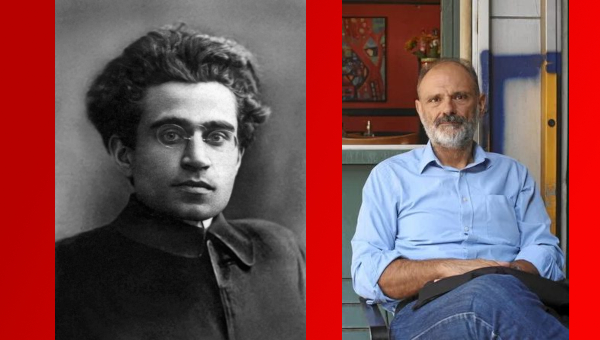Socialist Democracy from Rosa Luxemburg to Today’s Movements
Peter Hudis speaks with Azade Raisdana Thirty years after the fall and after the financial and Corona crises how do you see and evaluate the situation of socialist or communist … Watch video »
Peter Hudis speaks with Azade Raisdana
Thirty years after the fall and after the financial and Corona crises how do you see and evaluate the situation of socialist or communist movement generally? We see in all countries growing interest in Marx’s works and socialism especially among younger generations. Do we witness a new wave of revival of socialism after the fall – an appropriate historical moment that brings back Marx and Marxian socialism?
In your article “What is Democratic Socialism? What is Socialist Democracy?” you start by saying that “The past several years has witnessed an explosion of interest in socialist theory and practice – and especially of democratic socialism.” Explain to our viewers the facts and evidence upon which you have made such an evaluation? Has the Marxian socialism or democratic socialism turned to mainstream trend in our movement or is it on the road to become the mainstream? What is the difference of democratic socialism with social democracy?
From Marx’s point of view, what is the difference between ‘socialist democracy’ and ‘liberal democracy’? Is there a common point, or they just constitute two opposite poles or incompatible extremes?
We want to track the footprint of democratic socialism after the October, 1917, revolution. You are one of editors of Rosa Luxemburg’s collected works in English by Verso. Is Rosa’s book Russian Revolution a milestone for reviving Marxian socialism or democratic socialism, particularly the chapters that belong to her sharp criticism of Bolsheviks (Lenin and Trotsky) for suppressing political freedoms and democracy after the October revolution?
Some in the left are claiming that Rosa, after being released from prison, and encountering the realities of German revolution, took back her criticism of the Bolsheviks for their violation of political freedoms and democracy. Is there any evidence for such claims?
Some refer to Rosa’s articles “Constituent Assembly or Council Government?” on 17 December 1918 and “The Elections to the National Assembly” on 23 December 1918 as a hard fact that Rosa took back her criticism of Bolsheviks for dispersing constituent assembly after October revolution. They claim that this evidence proves that after a victorious socialist revolution, council government or workers’ state, does not need to be confirmed democratically by constituent assembly as an expression of the free will of majority for constituting a new political order! They also argue that Constituent Assembly is nothing but a bourgeois parliament which is the crux of bourgeois order of liberal democracy, just the opposite pole of workers’ or council democracy!
The past several years has witnessed a growing interest for Constituent Assembly in many countries. The last case is Chile, under heavy pressure of mass demonstrations, elections for a Constitutional Assembly were held in May 2021. Is that interest in radical and combative left a sign of growing interest in Marxian socialism or democratic socialism?





